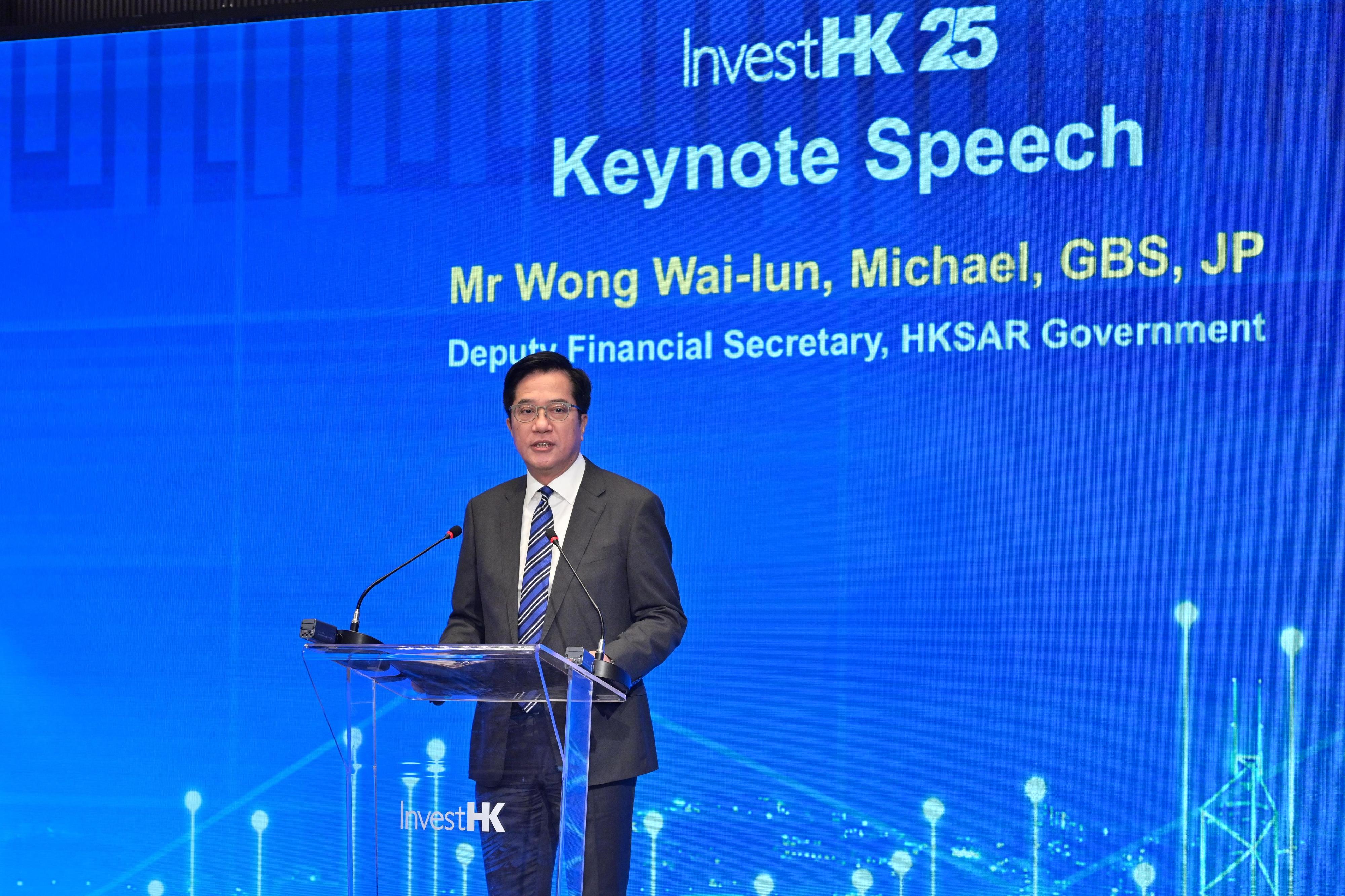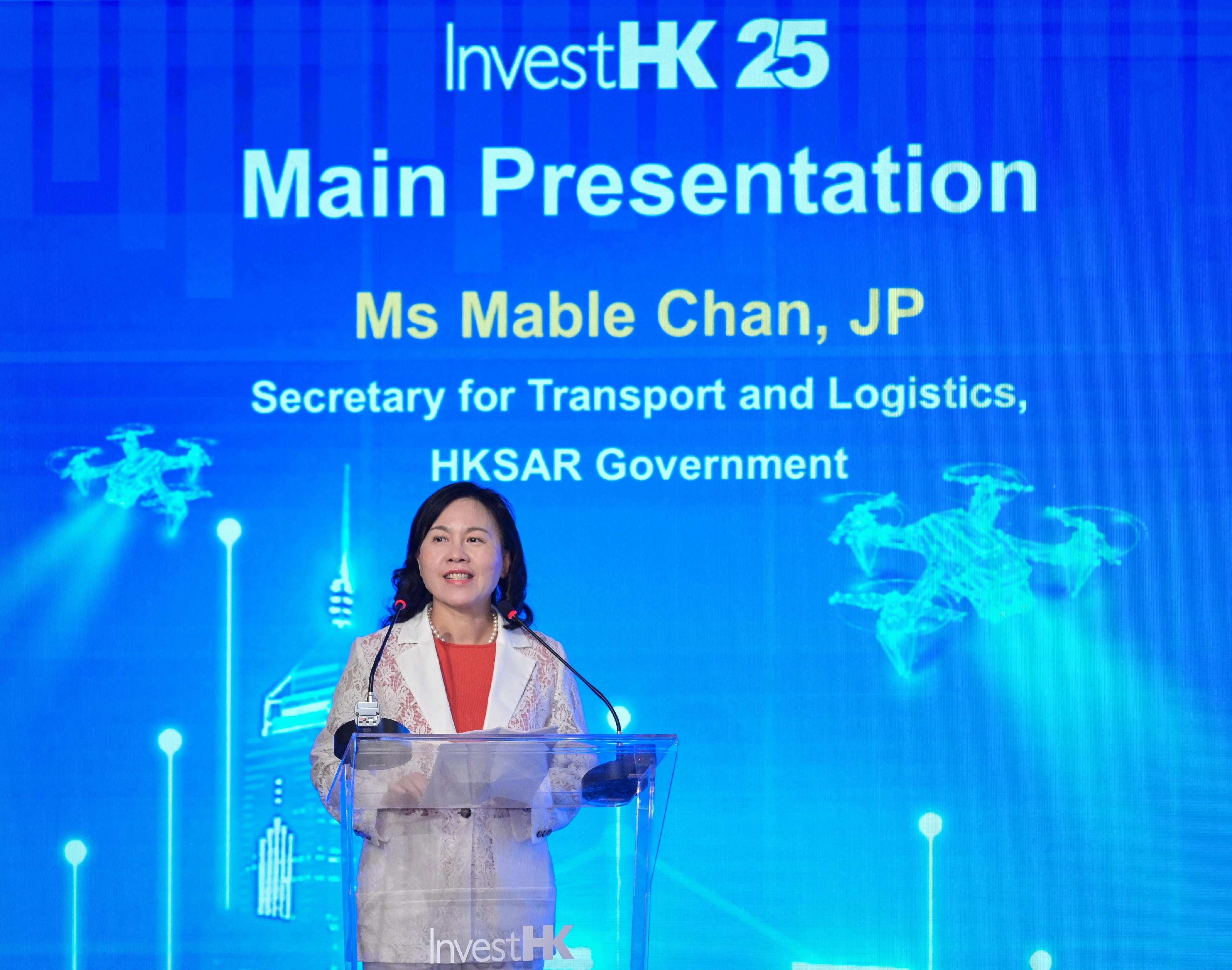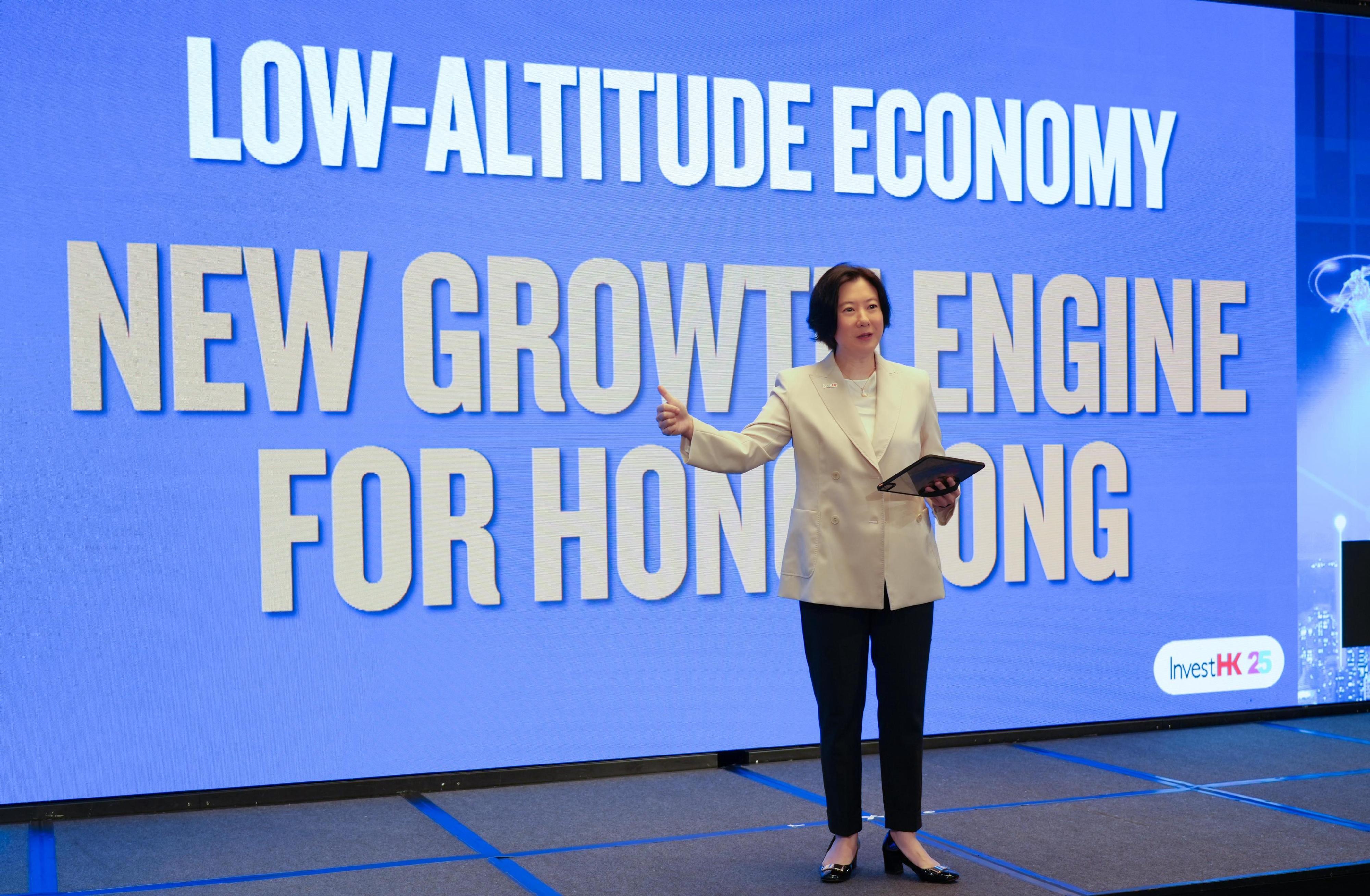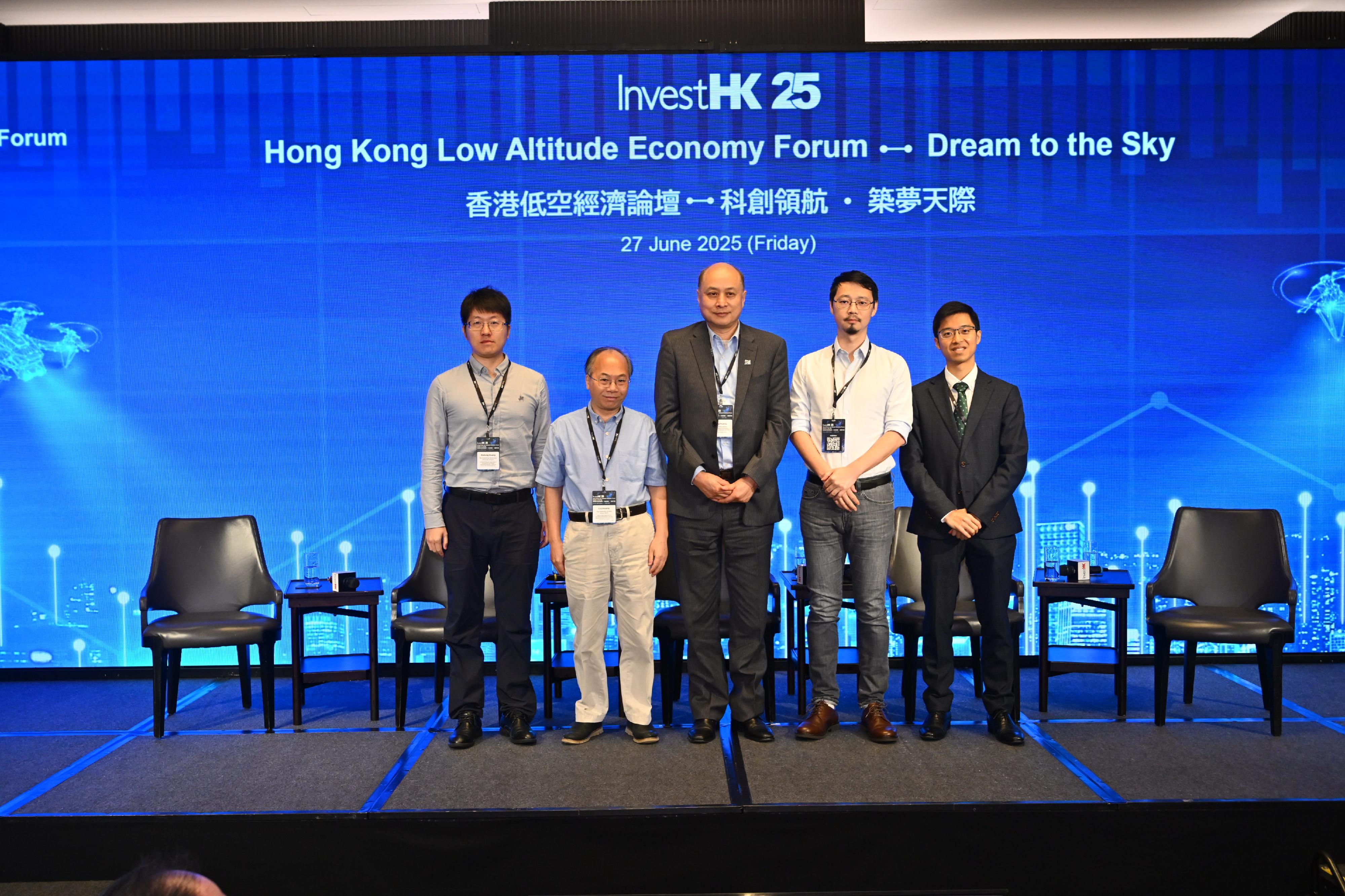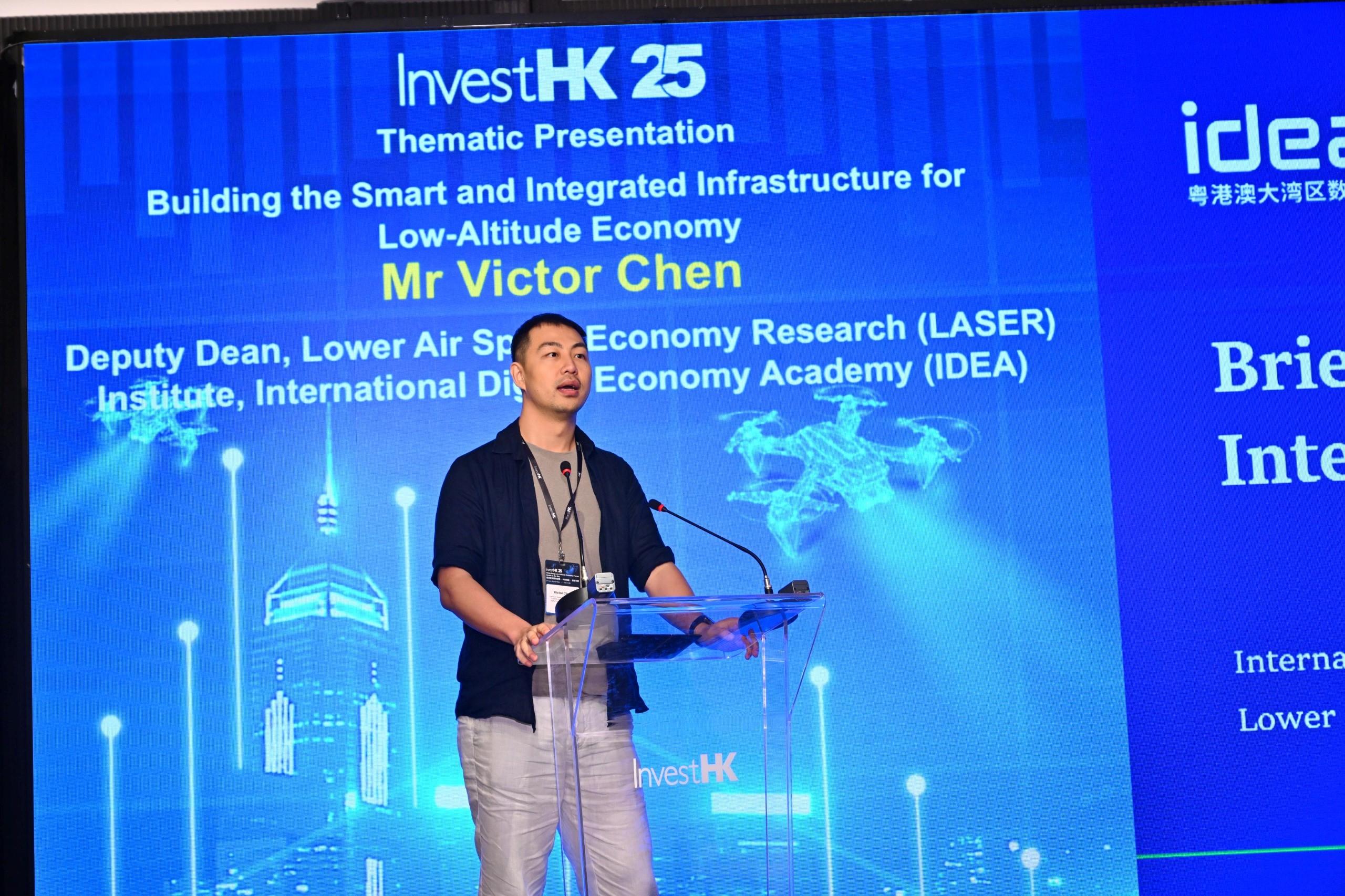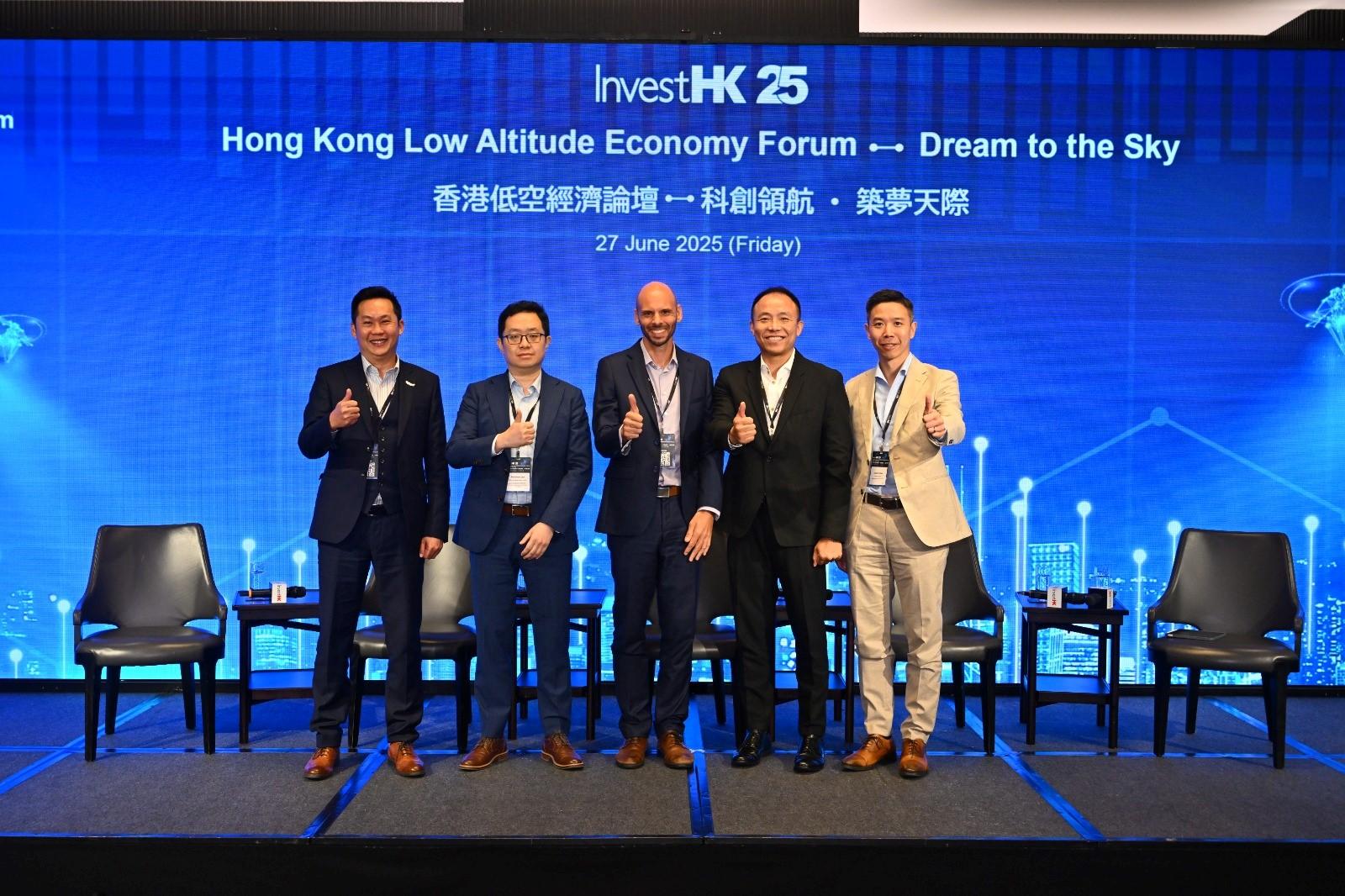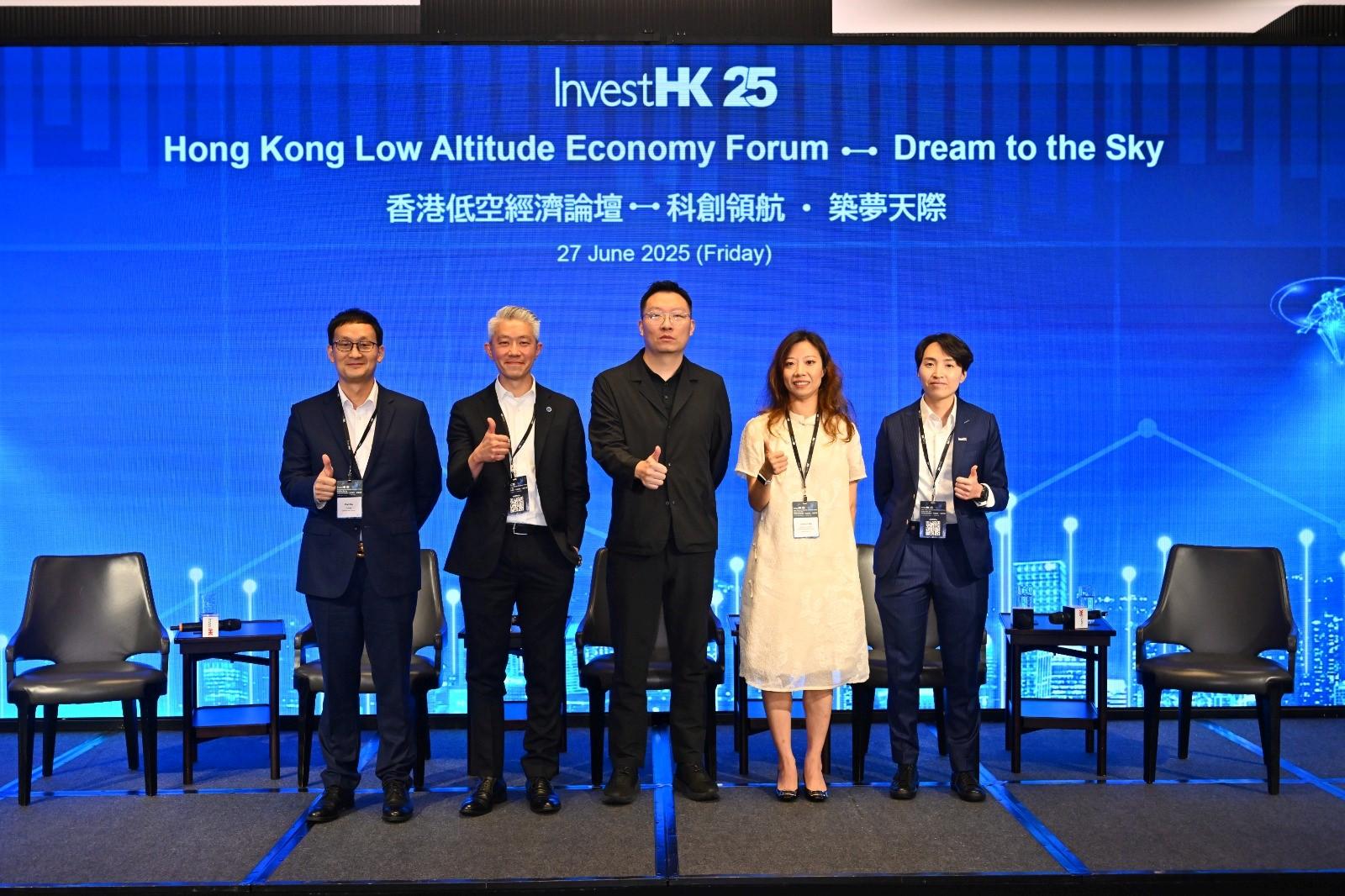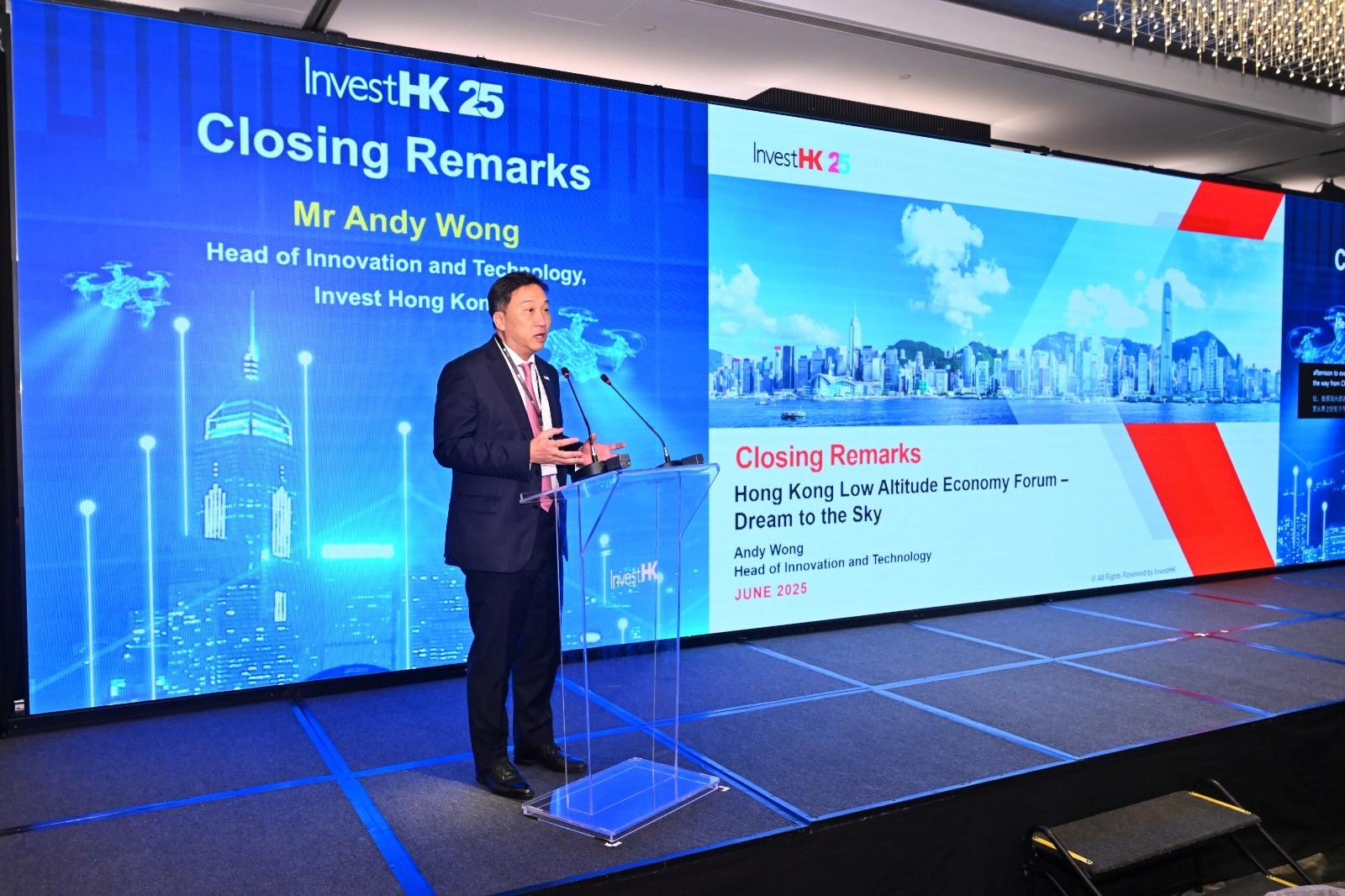InvestHK hosts inaugural Low Altitude Economy Forum - government, industry, academia and research join forces to drive development of Hong Kong's low-altitude innovation ecosystem (with photos)
******************************************************************************************
The LAE is one of the key policy initiatives announced in the "The Chief Executive's 2024 Policy Address". The Working Group on Developing Low-altitude Economy was established under the leadership of the Deputy Financial Secretary, Mr Michael Wong, to promote institutional innovation, technology implementation, and industry ecosystem building.
Speaking at the forum, Mr Wong said that developing a low-altitude economy has to be a joint effort. The Government will act as a facilitator and enabler, and will continue to move at a fast pace. He noted that the low-altitude economy has strong synergy with other sectors of the economy, stimulating growth and driving positive changes. The total impact and benefits to society, he said, will be greater than the sum of its parts.
The forum featured updates on multiple policy initiatives, including the launch of the first batch of Regulatory Sandbox pilot projects, and the direction of upcoming legislative amendments to civil aviation regulations covering higher-payload and passenger-carrying unmanned aerial systems, to fuel the future development of Advanced Air Mobility.
The Secretary for Transport and Logistics, Ms Mable Chan said, "Our LAE Regulatory Sandbox, covering a wide range of fields, including emergency rescue, logistics, infrastructure inspection and surveillance, is more than just a testing ground. It is a launch pad for transformative technologies that will shape the future of urban mobility, logistics, and public services. These diverse applications demonstrate the remarkable versatility of low-altitude technologies and showcase how unmanned systems can solve unique urban challenges while creating new economic opportunities. Hong Kong's unique strengths, such as our professional services in airspace management, technology integration and specialised insurance, make it an ideal hub for the development of LAE. Looking forward, we will continue to leverage these advantages to create a regional ecosystem where businesses and researchers in the LAE field can thrive."
The forum also highlighted the immense growth potential of the low-altitude industry value chain and the critical role of government-industry-academia-research collaboration in driving innovation. Three thematic panel discussions explored topics such as low-altitude technology and innovation, infrastructure development and safety management, as well as diverse application scenarios including logistics, emergency response and urban planning, fostering cross-sector knowledge exchanges and partnerships.
The Director-General of Investment Promotion at InvestHK, Ms Alpha Lau, said, "The LAE represents not only a strategic emerging industry; it showcases the harnessing of new quality productive forces. It will be a new growth engine for Hong Kong, and we have taken bold steps to realise this vision. Through this forum, we will illustrate how low-altitude solutions are reshaping industry paradigms, from smart logistics to urban air mobility. InvestHK will continue to attract and support overseas and Mainland companies, leveraging Hong Kong's role as a 'super connector' and 'super value-adder' to jointly build a forward-looking and competitive low-altitude economy ecosystem."
Speakers at the forum included representatives from the Hong Kong Polytechnic University, the Hong Kong University of Science and Technology (HKUST), the University of Hong Kong, the Hong Kong Applied Science and Technology Research Institute, the Hong Kong Productivity Council, Cyberport, and CLP Power Hong Kong. Participants shared insights on cutting-edge research and real-world applications. Many noted that Hong Kong’s strong research foundation, sound institutional support, and mature cross-sector collaboration provide a solid base for advancing industrial applications and regional integration in the low altitude sector, further positioning the city as a driving force for low altitude innovation across Asia.
Deputy Dean, Lower Air Space Economy Research Institute, International Digital Economy Academy, Mr Victor Chen remarked, "The low-altitude economy offers vast potential in transportation, emergency services, and logistics etc. We prioritise synchronised research and development alongside policy innovation, particularly in cross-border collaboration and regulatory standards, where Hong Kong's position as an international hub makes it a pivotal catalyst for industry growth."
Professor in the Department of Computer Science and Engineering Division of Integrative Systems and Design and Director of the Low Altitude Economy Research Center, HKUST, Professor Mo Li, stated, "The advancement of the low-altitude economy is heavily dependent on sophisticated artificial intelligence and automation systems. At HKUST, we are actively researching drone navigation, airspace management, and cross-platform collaboration technologies. Through close partnerships between academia and industry, we aim to drive the practical application of low-altitude technologies, injecting fresh impetus into the development of smart cities."
The Managing Director of GODO Innovation Technology HK Limited, Ms Joanne Wu, commented, "Hong Kong's strengths in regulatory support, testing environments, and market connectivity, particularly through the regulatory sandbox, enable swift implementation and validation of innovative solutions, providing opportunities for product optimisation and commercial expansion. We look forward to collaborating with government and research institutions to build a world-class low-altitude innovation ecosystem."
Ends/Friday, June 27, 2025
Issued at HKT 14:20
Issued at HKT 14:20
NNNN





